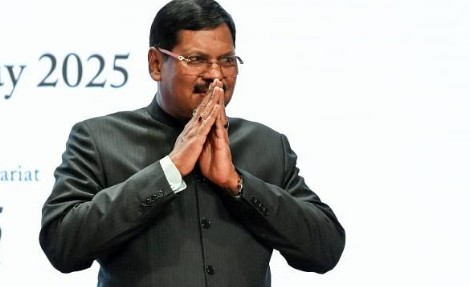New Delhi: During a felicitation ceremony organized by the Bar Council of India (BCI), Chief Justice of India (CJI) Justice B R Gavai delivered a compelling speech emphasizing the vital importance of judges understanding and addressing societal realities.
The BCI event, held on Saturday in the capital city, was organized to honor the 52nd CJI following his recent elevation to the position. Justice Gavai stressed that modern judiciary must move beyond viewing legal issues in black-and-white terms, instead considering the complexities of human experiences in their judgments.
Reflecting on his journey, the CJI recalled initial hesitation in accepting the judgeship—his father had advised him that continuing as a lawyer would be financially rewarding, but he felt that serving on a constitutional bench would enable him to advance Dr. B R Ambedkar’s vision of social and economic justice.
Choosing to follow his father’s guidance, Justice Gavai looked back with pride on his 22 years as a High Court judge and six years on the Supreme Court, asserting he always aimed to give his best to the judiciary.
He emphasized that judges should not isolate themselves from society and dismissed the idea that Supreme Court judges should avoid engaging with the public. Justice Gavai has been a vocal advocate for inclusivity in judicial appointments, promoting representation for marginalized groups and women.
He recalled a significant conference where former CJI D Y Chandrachud urged Chief Justices of various courts to actively consider candidates from underrepresented communities for judicial roles. Highlighting the challenges in finding women candidates for diverse positions, Justice Gavai encouraged Chief Justices to consider qualified female advocates from the Supreme Court pool, expressing optimism about the positive effects of these measures.
Addressing the issue of judicial vacancies, he noted that staffing gaps significantly contribute to case backlogs. He reiterated the Collegium’s resolve to reduce vacancies and urged the executive branch to cooperate in expediting appointments, envisioning a more responsive and effective judiciary through collaboration.
He ended his speech by sharing a milestone—his first appointment as CJI was of a judge from a marginalized community in Karnataka, a decision he highlighted as evidence of his commitment to social justice and the need for the judiciary to mirror societal diversity.
